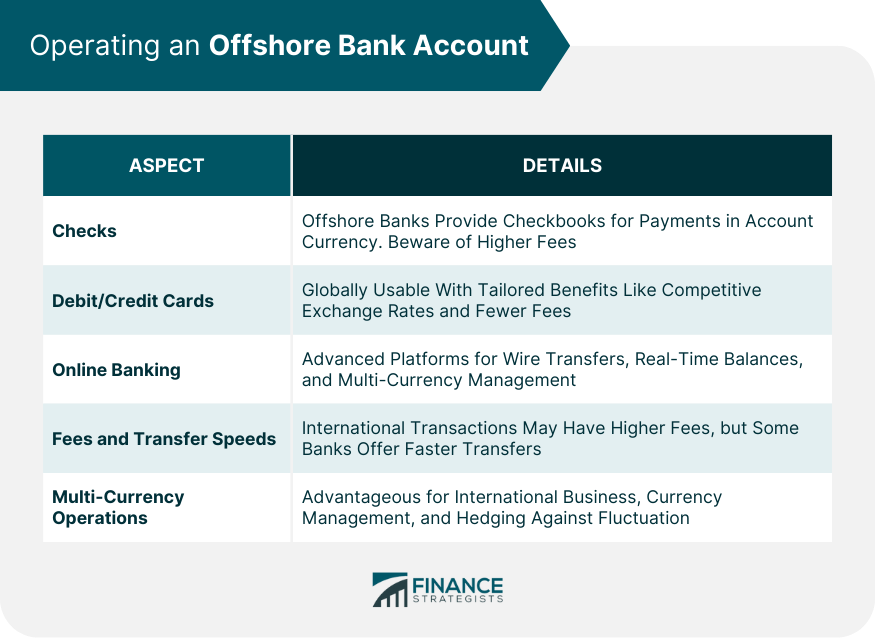Offshore Company Formation : A Comprehensive Guide for Business Owners
Offshore Company Formation : A Comprehensive Guide for Business Owners
Blog Article
Techniques for Cost-Effective Offshore Firm Formation
When taking into consideration offshore business development, the pursuit for cost-effectiveness comes to be a critical problem for companies looking for to increase their procedures internationally. In a landscape where financial vigilance rules supreme, the strategies utilized in structuring offshore entities can make all the distinction in attaining economic efficiency and operational success. From navigating the complexities of jurisdiction choice to applying tax-efficient frameworks, the journey towards establishing an offshore existence is swarming with difficulties and possibilities. By exploring nuanced approaches that blend legal compliance, financial optimization, and technological developments, services can get started on a path towards offshore business development that is both economically prudent and purposefully sound.
Picking the Right Jurisdiction
When establishing an offshore company, choosing the appropriate jurisdiction is a crucial decision that can dramatically affect the success and cost-effectiveness of the formation procedure. The jurisdiction chosen will certainly identify the regulatory structure within which the business runs, influencing tax, reporting needs, privacy regulations, and general company flexibility.
When picking a jurisdiction for your overseas business, numerous factors need to be taken into consideration to make certain the choice straightens with your tactical objectives. One essential facet is the tax obligation regime of the territory, as it can have a substantial influence on the company's success. Additionally, the degree of governing compliance needed, the economic and political security of the territory, and the ease of working should all be reviewed.

Moreover, the track record of the jurisdiction in the international service area is important, as it can affect the assumption of your company by clients, partners, and banks - offshore company formation. By carefully evaluating these aspects and looking for specialist advice, you can choose the ideal jurisdiction for your overseas company that maximizes cost-effectiveness and sustains your organization goals

Structuring Your Company Efficiently
To make sure optimum effectiveness in structuring your offshore firm, careful focus must be given to the business framework. The initial step is to specify the firm's ownership framework plainly. This includes establishing the police officers, directors, and investors, along with their roles and obligations. By developing a transparent possession structure, you can make sure smooth decision-making procedures and clear lines of authority within the company.
Following, it is necessary to think about the tax obligation ramifications of the chosen structure. Different jurisdictions use varying tax benefits and incentives for overseas companies. By very carefully assessing the tax obligation regulations and regulations of the selected jurisdiction, you can enhance your business's tax efficiency and minimize unnecessary expenses.
Furthermore, keeping correct documents and documents is vital for the effective structuring of your offshore company. By maintaining exact and updated documents of economic deals, corporate decisions, and conformity papers, you can guarantee transparency and liability within the company. This not only facilitates smooth procedures however also aids in showing compliance with governing needs.
Leveraging Innovation for Savings
Effective structuring of your overseas firm not just hinges on precise interest to business structures however additionally on leveraging modern technology for financial savings. One means to leverage technology for savings in offshore company formation is by using cloud-based services for data storage and collaboration. By integrating technology strategically into your overseas company development procedure, you can attain considerable cost savings while enhancing functional effectiveness.
Reducing Tax Liabilities
Using strategic tax obligation planning strategies can efficiently lower the monetary burden of tax liabilities for overseas firms. Furthermore, taking benefit of tax motivations and exemptions supplied by the jurisdiction where the offshore business is registered can result in significant cost savings.
Another technique to decreasing tax liabilities is by structuring the overseas business in a tax-efficient fashion - offshore company formation. This involves meticulously developing the possession and functional structure to enhance tax obligation benefits. For more information example, establishing up a holding company in a jurisdiction with desirable tax legislations can aid minimize and Read Full Article combine earnings tax obligation exposure.
Additionally, remaining updated on international tax guidelines and conformity needs is important for minimizing tax obligation liabilities. By guaranteeing stringent adherence to tax legislations and guidelines, overseas business can prevent expensive charges and tax obligation conflicts. Looking for expert advice from tax obligation consultants or lawful professionals concentrated on worldwide tax issues can additionally provide valuable understandings right into reliable tax obligation planning techniques.
Making Sure Compliance and Risk Reduction
Implementing durable compliance steps is necessary for offshore firms to minimize dangers and keep regulatory adherence. Offshore territories usually deal with boosted analysis due to problems concerning money laundering, tax evasion, and other economic criminal activities. To guarantee conformity and mitigate risks, offshore business must conduct detailed due diligence on customers and organization partners to stop participation in illegal activities. In addition, applying Know Your Consumer (KYC) and Anti-Money Laundering (AML) treatments can aid validate the authenticity of deals and secure the company's reputation. Regular audits and evaluations of economic records are crucial to recognize any type of abnormalities or non-compliance issues immediately.
In addition, staying abreast of altering guidelines and lawful requirements is important for overseas firms to adjust their compliance practices appropriately. Involving lawful specialists or conformity consultants can offer useful advice on browsing complex regulatory landscapes and making sure adherence to global dig this standards. By prioritizing compliance and risk mitigation, offshore companies can enhance transparency, build count on with stakeholders, and protect their operations from potential legal repercussions.
Conclusion

Making use of strategic tax planning techniques can efficiently decrease the monetary concern of tax obligations for overseas companies. By distributing revenues to entities in low-tax jurisdictions, offshore companies can legally lower their total tax obligation commitments. In addition, taking benefit of tax obligation rewards and exceptions used by the jurisdiction where the offshore company is registered can result in substantial financial savings.
By making certain rigorous adherence to tax obligation legislations and guidelines, overseas business can avoid expensive charges and tax conflicts.In verdict, affordable overseas company development requires careful factor to consider of territory, effective structuring, innovation usage, tax obligation reduction, and compliance.
Report this page